
Internship In The Spotlight: Yael Vloch Glassblowing
“I am currently in Jerusalem interning in a studio called
Yael Vloch Glassblowing.
The art of glassblowing has existed for thousands of years and through it, many diverse things are made such as home decor, jewelry, and of course, fine art.
Glassblowing is so much fun, and anybody can become a glassblower even without any experience. The glass when it is cooled has a harden structure; however, when you heat it, it becomes liquid and flexible. Then you can start sculpting, connecting and creating almost anything you want. There are many types of glass that can be worked with and shaped. The glass that is common in my studio where I create and teach, is ‘borosilicate’ – most of you know it as Pyrex. The uniqueness of this glass is that it remains stable at high heat.”
-Malcolm Condon






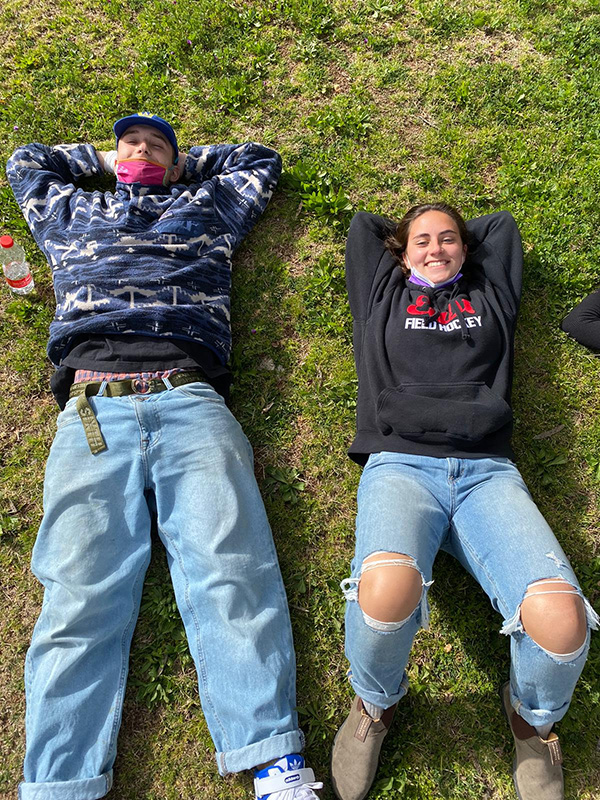
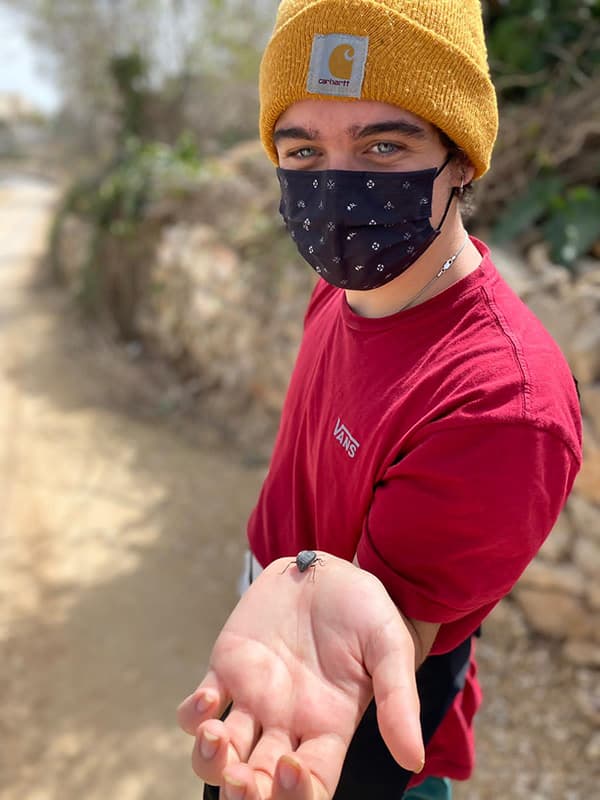
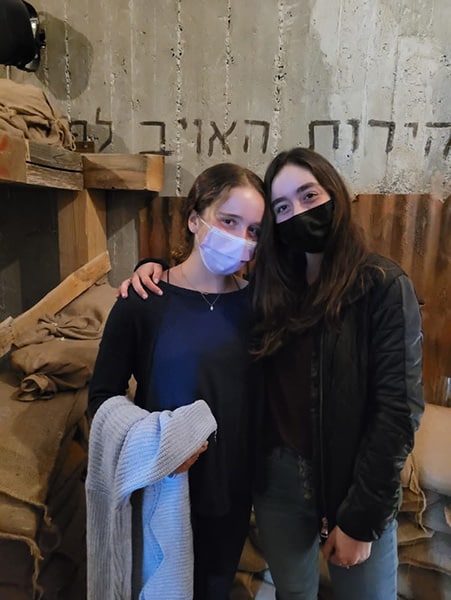
After a lunch break at Kibbutz Kfar Etzion’s industrial zone, where many students ate some of the best humus in the country, we visited the museum at Kfar Etzion to learn about the Jewish history of Gush Etzion. We learned about the founding of the four kibbutzim before 1948 and the fall of Gush Etzion at the hands of the Arab Jordanian League the day before David Ben Gurion declared Israel’s independence on May 14, 1948.
This was an intense and heavy day, but we discovered a great deal as we heard multiple perspectives. It was a success in that we all came out with more questions than we had at the start.
“For week’s Tiyul Tuesday we got the unique opportunity to tour Gush Etzion, a cluster of Israeli settlements in Area C of the West Bank. This experience was extremely insightful because it gave us a perspective we never had before— a dual Israeli and Palestinian narrative. Through an organization called Roots, we were able to talk to a Jewish Israeli and a Palestinian. Each took turns highlighting the problems they faced, their beliefs and opinions, and their journey with trying to understand both narratives. Next, we traveled to the Gush Etzion Heritage sight, where we learned about the history of the area and were told the heroic story of Kfar Etzion’s defenders. In retrospect, this was one of the most powerful Tiyul Tuesdays because I was able to look at the West Bank through
a different lens.
-Emily glazer
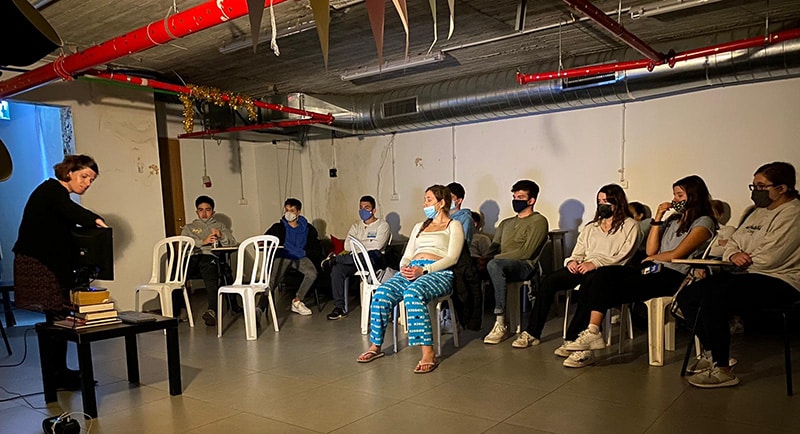
In honor of International Women’s Day Aardvark Israel hosted the Women of the Wall (Neshot Hakotel הכותל נשות) representative Tami. Women of the Wall is a group of Jewish women from Israel and abroad who strive to achieve the right for women to wear prayer shawls, pray and read from the Torah collectively and out loud at the Western Wall (Kotel) in Jerusalem. Women of the Wall is comprised of women from all denominations of Judaism – Orthodox, Reform, Conservative, Masorti, Renewal and Re-constructionist.
Women of the Wall not only seeks empowerment in group prayer and Torah reading at our most sacred site, but also strives for recognition of women’s prayer services by the legal and religious Israeli authorities. With a membership that is not only multi-denominational but spans the political spectrum, the group embodies a message of tolerance and pluralism.
“This week we received a presentation from a Women of the Wall representative. For those who don’t know, Women of the Wall is a spectacular and significant organization based here in Israel that fights for women’s right to pray openly and loudly at the Kotel, to wear talit at the Kotel, and to read Torah communally at the Kotel. “But aren’t women already allowed to do these things at the Kotel?”, some of you alarmed diaspora readers may be wondering. The answer is no. Under the chief Rabbinit, who establishes all of the rules regarding Western Wall conduct, women, the inferiorities, are allowed to do no such things. And yet men are. The Women of the Wall gather once a month at the Kotel to battle this gross miscarriage of justice. They pray and sing together, out loud, and sometimes wear talit or bring Torah’s. Often they are met with hateful language and sometimes even physical violence. On the other side of the Mechitzah, the divider separating the men and women, the men are also singing out loud, wearing their prayer shawls, and practicing their Judaism joyously. But for them it never ends in kicks to the shins, or arrests. Inequality in specific aspects of Judaism is glaring and distressing, but it is immensely encouraging to be exposed to a group like Women of the Wall. They are standing up for individuals such as myself, who wish to practice their Judaism openly and without constraint, and for that I am ever grateful.”
-Rebecca pearl
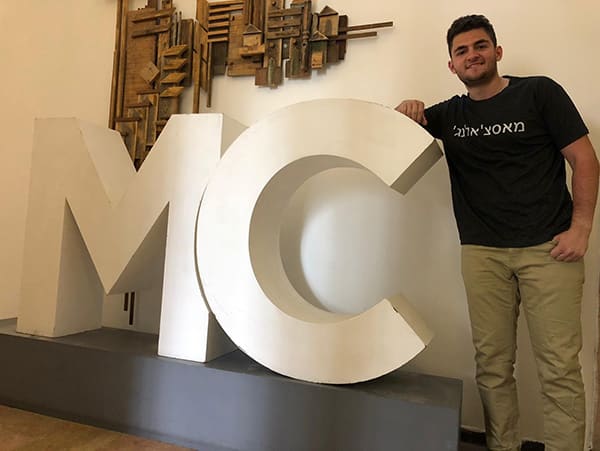
Internship In The Spotlight: MassChallenge Israel
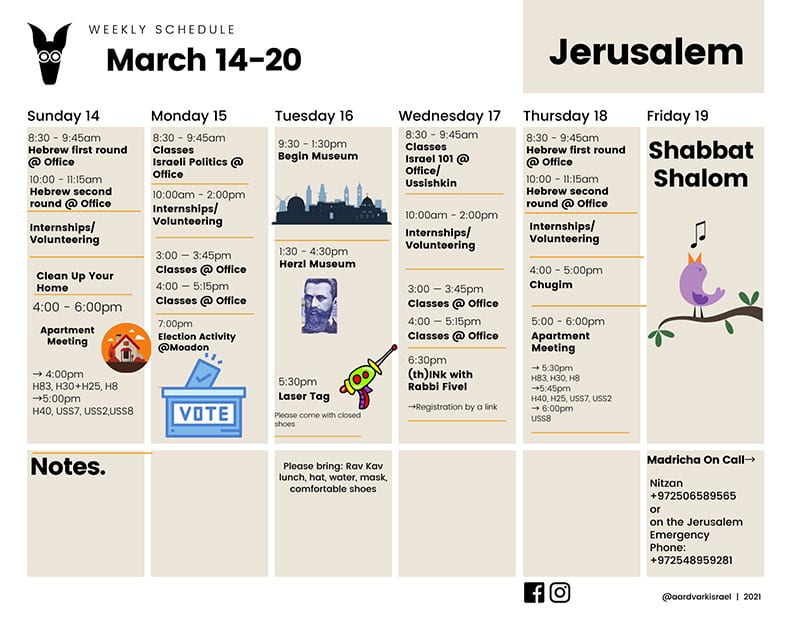
Shabbat Shalom,

















